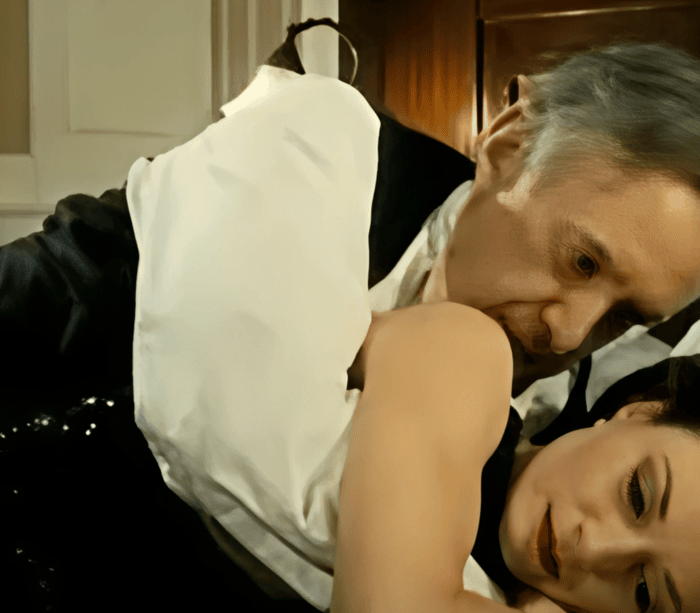
Struggling With Stage Fright? Here Are Soprano Amanda Majeski’s 4 Tips For Overcoming It
By David SalazarStage fright. What performer or artist of any kind has not dealt with some form of performance anxiety at some point in his or her career? In fact, they say that if you care about something, there will always be nerves associated.
Some people are excellent at channeling these emotions in the right manner – Franco Corelli was said to have struggled with performance anxiety his entire career, but you probably wouldn’t know that from his career.
However, not everyone is able to overcome anxiety so easily, and some struggle far more than others. The inability to conquer or channel these emotions can be crippling to many potentially great artists.
Soprano Amanda Majeski knows all about the challenges of overcoming performance anxiety. The star singer, who has performed at the Metropolitan Opera, Washington National Opera, Bard Music Festival, Paris Opera, Teatro Colón, Lyric Opera of Chicago, and Santa Fe Opera, among others, has often found herself combatting some form of stage fright throughout her career. In a recent interview with OperaWire, she noted that this has been the greatest challenge of her career.
“The greatest challenge for me has been dealing with my anxiety, and I can’t say I’ve completely overcome it. Some performances are easier than others. I have tools to deal with it and keep it in check, but it often feels like a battle to get out of my own way,” she noted.
Here are four tips that Majeski gives for dealing with stage fright.
1. Don’t Fight It
It’s natural to identify a challenge and try to “overcome it.” But then it becomes more present because you wind up fixating on it more.
“I’m fully convinced the more we try not to be anxious, the more anxious we become,” she exclaimed. “When I feel the anxiety flooding me, I say to myself, ‘Okay, I’m anxious. No big deal.’ I accept it, and try to go deeper into that feeling. It seems counterintuitive, but when I do, something interesting happens. Anxiety for me can often feel like a tornado ripping through my system. If I choose to say to myself, ‘No, this can’t be happening, I can’t feel this way,’ the result is always equivalent to me flying around out of control on the outer edge of the tornado. When I embrace it, and go deeper into the feeling, it feels like going into the eye of the tornado. It’s not gone, but it’s easier and less overwhelming.
2. Avoid Self-Criticism and Self-Doubt
When people feel nervous, they tend to start questioning the nerves and that often leads to feelings of insecurity and doubt. After all, if you’re nervous, it’s because you are afraid of messing up a certain passage or forget a specific blocking or cue. But that’s not necessarily the case or the core reason for those nerves.
“When understanding my anxiety, it has often felt like ‘which comes first, the chicken or the egg?’ Does the anxious feeling induce the negative thinking, or does the negative thinking encourage the anxious feeling? Sometimes it feels like both could be happening at the same time,” Majeski noted. “What I do know is that I am more than my thoughts, and just because a thought comes, doesn’t mean I have to believe it or get involved in it. If my mind gets in my way, and says something like, ‘You’re going to miss that high note today,’ I have the control to stop that thought in its tracks. I can see it, acknowledge it, and then let it go, rather than choosing to worry or replay it over and over again. Getting involved in negative thinking is unproductive, a waste of energy, and honestly not a very good look.
“Instead, I can come back to something more productive—choosing to say a kind phrase to myself, taking a deep breath, or feeling my feet on the floor—something that grounds me in the present rather than being swept up by a thought that holds no merit.”
3. Exercise & Meditate
Of course, acknowledging it is only part of managing it. You can also put it aside mentally by engaging in other activities.
“I love to go for a run (and not just on show days, but most days), but this could be any physical activity that gets your body moving,” Majeski noted. “For me, running allows me to get out of my head and into my body. I practice leaving my busy mind on the road behind me and focusing on the physical. When my head starts to ‘make noise,’ I reset my focus on what the body is doing, such as my foot striking the ground, the air against my skin, my arms swinging back and forth. Not only does this help ground me, but the success of accomplishing a run fills the mind with all those positive chemicals that scientists can better explain, which make me happier and less stressed.”
But Majeski notes that exercise isn’t the only way to keep your mind off of stage fright.
“We all acknowledge that singing is a full body art form, but if we don’t include the mind in our training, it can sneak up on us and derail all the hours of physical and vocal training we’ve focused on. I’ve found that meditation is a great tool to isolate and train the mind and breath separately from the practice of singing. Meditation is a process, and for someone as impatient as me I initially found it very hard to stick to and didn’t think it could help at all. However, I found the app Headspace, which helps me stick to a schedule of 10 minutes a day. As I started to make this 10 minutes a part of my daily routine, I soon saw the benefit. Being able to sit quietly and practice slowing my mind down, while feeling and connecting with the breath is something I can now access when I’m singing and even in performance. When I find myself starting to struggle, I come back to that place of quiet and stillness, and find that I can reset that way, rather than allowing my mind to panic.
4. You’re Not Alone
When you’re onstage, you might often feel like you’re all alone. But for Majeski, there’s fortitude in remember that all artists have someone they can turn to and, more importantly, there are others that are going through the same thing.
“I find it helps to talk my feelings through with friends, family, and loved ones,” she noted. “Remember that it’s okay to feel anxious—it means you care. Don’t isolate yourself from those around you— you’re part of a whole. Specifically, before I go onstage I make a point to see some of my colleagues and to wish them well. It’s a good reminder for me that it’s not just me out there, that I am connected to something bigger, and as a whole we are bringing something beautiful to the world. Not everyone in the audience will like the production or my performance, but that’s okay. Someone will, and that’s why we keep fighting, keep working, and keep facing each struggle as it comes.
Categories
Special Features

